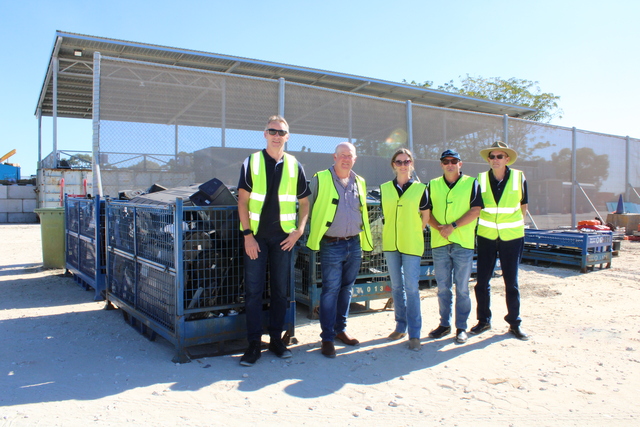The Good Oil by Rod Brown *
This month we relate the story of the town of Ronneby in the Blekinge region in Sweden. Until recently, there was no university. Now Ronneby, six hours drive south of Stockholm, has one and a major transformation has occurred. It is not as straightforward as that, as Anders Nilsson, the mild mannered Chairman of the Soft Center, explained at functions hosted by Ballarat Advantage and the University of Ballarat in late August.
The story begins in 1985 when Ronneby, population 13,000, with 35,000 in the hinterland, was a centre for raw material processing. However, there was little R&D, no tradition of higher education, high unemployment, and the Volvo steel mill was closing with a loss of 400 jobs. A carefully selected group of local officials worked out a number of concrete projects which were presented to the Ministry of Industry. As Anders Nilsson explained, the most far reaching and daring project was the establishment of a centre for education, R&D and business related to software – the Soft Center.
After in principle support for the concept was received by the Federal Government, a project leader named Krister Gavuzzi was appointed to develop it further. Three core elements were agreed – a critical mass of companies, education and training at different levels, and R&D projects – and an emphasis was placed on combining these elements.
Gavuzzi had apparently been inspired by Ake Andersson and Gunnar Tornqvist, who had popularised the notion of a ‘creative environment’ in Sweden. However Gavuzzi was insisting that the project had to start from local conditions rather than theoretical constructs or from what has been done in other places. A second vital task was to mobilise support among industry and public organisations. There were people playing different roles – the visionary, the resourcer, the manager, the salesman, the cultivator and the critic.
There are some very interesting features of the Soft Center including the following.
- It is a boutique operation (1,500-1,700 students) specialising in IT software.
- The initial anchor tenant was a local flooring company with a strong IT capability
- Futuristic buildings
- There is a strong emphasis on linking the Center to outside agencies
The key tenants of the Soft Center are now Ericsson, France Telecom and Deutsche Telecom with lesser lights sprinkled around. A milieu of activity is created. Companies within the Center are forbidden to have their own coffee rooms – Nilsson says that outcomes evolve just by rubbing shoulders.. Students must undertake projects with companies , as a means of building connections and driving employment outcomes. One of the success factors was that the bulk of the university personnel, companies and students came from other regions – a different mindset was thus created to that prevailing in 1985.
Anders Nilsson cautions that this type of project must be seen in a 15 year timeframe. Also, though the IT industry is currently going through downturn, the cycle will turn. He also observed that unemployment is still stuck at eight per cent, presumably because of the structural shift in the regional employment market. One particularly interesting aspect is that the Ronneby Local Government authorities provided around $A70 million towards the project over 15 years apart from placing a strain on ratepayers, they had to deal with the understandable disquiet of the unemployed steel workers.
In a reply to a rhetorical question from a member of the audience as to whether Anders Nilsson would consider coming to Ballarat, he said that although Australia is a great place, the answer was ‘Definitely not. It is not a McDonald’s franchise…and my lack of local knowledge would be a major constraint’.
If you are planning a trip to Sweden, the Soft Center people are keen to share experiences and build international alliances. See www.softcenter.com or contact Anders Nilsson direct at anders.nilsson @softcenter.se
Telstra sell-off
In last month’s column, I argued that Local Government should be negotiating for a major slice of the Telstra proceeds to go to regional infrastructure – sell one asset and buy others. As predicted, the Treasurer has since been reported as saying that debt retirement should be the main aim. It will thus be interesting to see how the National Party approaches the issue. One of the difficulties is that while Regional Australia has its champions, they are mostly disconnected.
ACC roles
While at the Ballarat University Conference, a panel discussion broached the issue of the interplay between the private sector and Government in regions, and also the role of Government grants to specific firms.
It was observed that some Area Consultative Committees in various parts of the country were doing this, and we discussed later whether it might be wiser to concentrate more on doing cocktails with State and Local Government in respect to hard and soft infrastructure needs – such as incubators, network development, water quality, education support, marketing – where a group of companies could benefit. This would also facilitate collaboration.
* Rod Brown’s Canberra based consultancy group, Australian Project Developments Pty Ltd, specialises in industry/regional development and Government liaison. For further information telephone (02) 6231 7261 or email apd@orac.net.au







